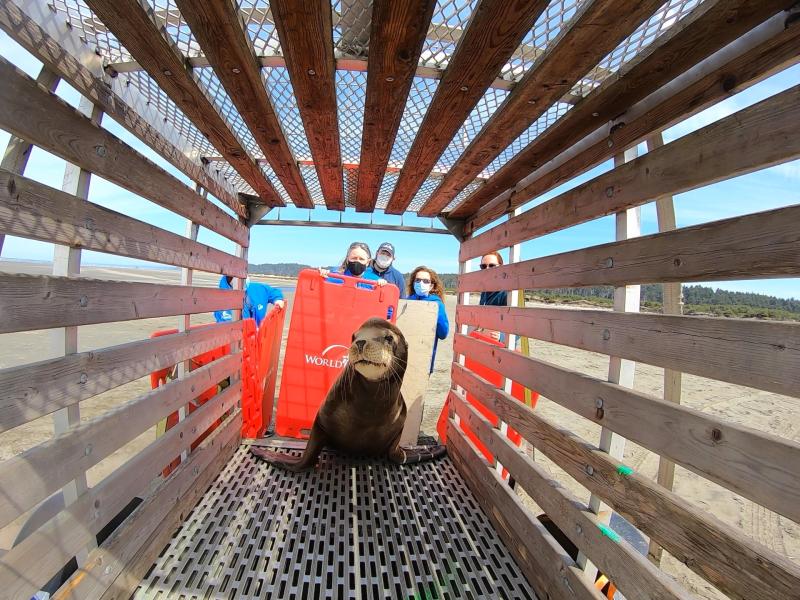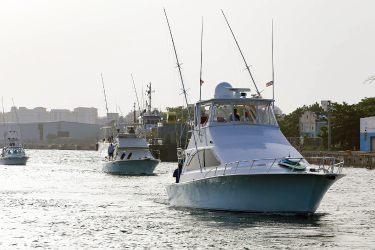From 2016–2020, the Prescott Grant Program awarded more than $16 million through 187 competitive grants to Stranding and Entanglement Network members and research collaborators. Recipients included members in 24 states and two tribes. NOAA Fisheries awarded an additional $418,316 in emergency funds in that period. This program has helped to build a strong network of more than 100 trained, professional partner organizations. These trained professionals and volunteers provide valuable data as they respond to marine mammals in distress. They help NOAA Fisheries establish links among the health of marine mammals, coastal ecosystems, and coastal communities.
NOAA Fisheries funds eligible members of the National Marine Mammal Stranding and Entanglement Networks and research collaborators through grants and cooperative agreements. The funding supports response to or treatment of marine mammals, collection of data from living or dead marine mammals for health research, and facility operation costs. Prescott Grant funding has enabled Stranding and Entanglement Network members to expand response coverage, enhance response capabilities and data collection, as well as build and upgrade rehabilitation facilities. It has also allowed network partners and research collaborators to investigate marine mammal health. Some specific accomplishments of Prescott Grant recipients from 2016–2020 include:
- The Atlantic Marine Conservation Society received four Prescott grants and provided mortality investigations for more than 300 pinnipeds and 135 cetaceans in New York, including 60 large whales
- The Marine Mammal Stranding Program at the University of North Carolina Wilmington used Prescott Grant funds to support the research for nine undergraduate students and eight graduate students who used stranding data to conduct research on marine mammal health
- World Vets, a first-time recipient in 2020, provided on-call and travel veterinary services to stranding response organizations in the Pacific Northwest
- The Northcoast Marine Mammal Center received four Prescott grants, one of which provided support for critical infrastructure updates to their rehabilitation center
- The Sun’aq Tribe of Kodiak, which joined the Network in 2018, received two awards, which helped the Tribe to respond to stranded marine mammal on Kodiak, including 28 gray whales that stranded during the Gray Whale Unusual Mortality Event
- The Marine Mammal Center’s Ke Kai Ola received five Prescott grants, and used these funds to successfully rehabilitate and release 19 endangered Hawaiian monk seals
The Prescott Grant Program is required to award competitive grants equitably across the five NOAA Fisheries Regions, to enhance stranding and entanglement response and investigations nationally. For this 5-year period, the competitive Prescott Grant awards were awarded in the following way:
- Greater Atlantic Region: 51 awards, 15 organizations (total $3,931,111)
- Southeast Region: 46 awards, 15 organizations (total $3,949,285)
- West Coast Region: 65 awards, 23 organizations (total $5,674,20)
- Alaska Region: 15 awards, 6 organizations (total $1,118,213)
- Pacific Islands Region: 10 awards, 3 organizations (total $976,383)
These totals do not include Emergency Prescott Grants.
A previous report summarized Prescott Grant activities from 2001–2010, and highlighted the first 10 years of the program. A second report summarized Prescott Grant activities from 2011–2015. This new report provides an updated overview of regional stranding and entanglement response in the ensuing 5 years. It contains summaries of selected Prescott Grant recipients highlighting their many accomplishments using Prescott funding.



